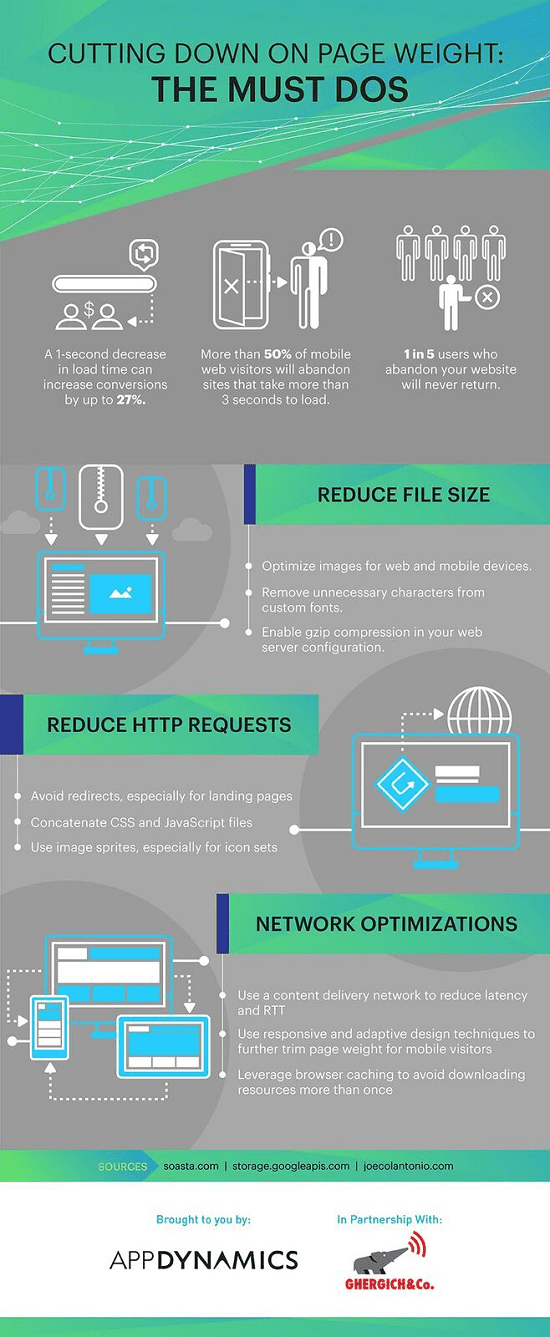Today we have a guest post from AppDynamics. The below includes an infographic on how to improve website performance, particularly page load time. Enjoy the post!
What’s one of the most annoying things about using the internet?
Sure, there are pop-ups and click-bait sites—but what about speed?
The speed of a web page can be enough to discourage people from using your site. And that can equal a lost potential customer or a disgruntled returning client.
That includes speed in both traditional computers and smart devices, too. Think about it: Just a few seconds means that mobile users will abandon your site entirely.
One of the key means of measuring page speed is measuring page weight. Page weight is simply everything on your page that needs to load.
That can be photos, scripts, programming or fonts.
Essentially a megabyte equals one second slower on load time. That might not sound like a lot—but it is.
There are some simple things that you can do to optimize your site, such as reducing the file size and working on network settings too.
And even simple decisions, such as building in redirects to other pages, can add weight to your site, which can slow it down.
You can help users by changing settings on caches as well as avoiding multiple downloads when not necessary.
Page speed isn’t something that’s set and forgotten either. You must continually monitor page speed and have baselines that you compare against.
You should also chart how those changes in speed—either good or bad—affect your business model.
Want to learn more? This graphic can help.

Original Source: AppDynamics
Disclaimer: The views and opinions stated in this post are that of the author, and Return On Now may or may not agree with any or all of the commentary. Image provided courtesy of AppDynamics under their own license.
Tommy Landry
Latest posts by Tommy Landry (see all)
- Why Local SEO Transfers to AI When Most SEO Tactics Don’t - February 10, 2026
- The Great Decoupling of Search - January 13, 2026
- How to Use AI to Accelerate Content Creation Without Losing Authenticity - January 6, 2026





